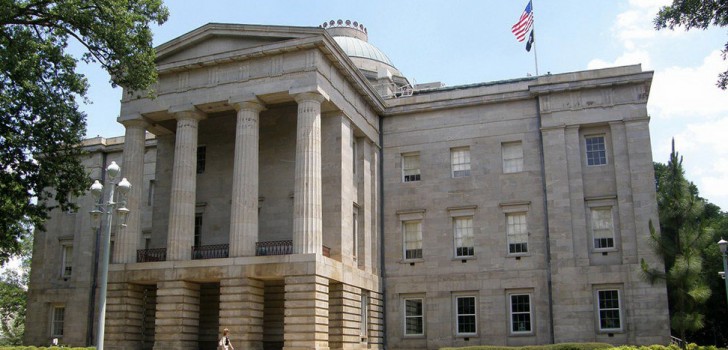North Carolina is considering a bill that would take power away from local city governments, giving the state more control over local laws. The bill would grant the state authority in areas such as housing, wages, and traffic laws.
Early Wednesday morning, the North Carolina General Assembly ratified the bill, but it did not include the amendment language that would take power away from local cities.
The bill has garnered major opposition from local government representatives and LGBT rights organizations.
If the bill does eventually pass the way it was originally intended, it would largely benefit wealthy individuals.
One aspect of the bill would remove the ability of cities to regulate local relations between tenants and landlords, giving landlords more power to place restrictions over their tenants.
Another portion of the bill prevents local and county governments from increasing the minimum wage within their jurisdictions. They would also lose the power to control any private employment practices. This would allow for conservative parties to discriminate against certain individuals, such as those who identify as LGBT or as Muslims.
Local governments would also face restrictions in passing laws or ordinances that deal with vehicular or pedestrian traffic. Instead, the North Carolina Board of Transportation would take complete and total control over such authority.
One major concern about the bill is the fact that it would prohibit any party other than the state government from setting affordable-housing goals, mandates, or minimums. This could result in lower-income individuals not having a place to live.
Earlier this year, a state-level religious freedom act failed in North Carolina. Meanwhile, a local ordinance in Charlotte that would have protected LGBT people from discrimination also failed to pass. Clearly, the state still has issues against certain minority groups.
The amendment currently in question would prevent cities in North Carolina from even considering ideas like local non-discrimination requirements.
Charlotte Mayor Daniel G. Clodfelter is not happy about the proposal. He is also displeased about the sneaky methods that were used by state officials to incorporate discriminatory practices into the bill.
“These provisions were inserted in the conference report with no prior public notice. They did not appear in any prior version of the bill as it was debated in committee or on the floor of either chamber. These provisions set our community back nearly half a century and will have a lasting negative impact on everyone,” he stated.
Stay Connected